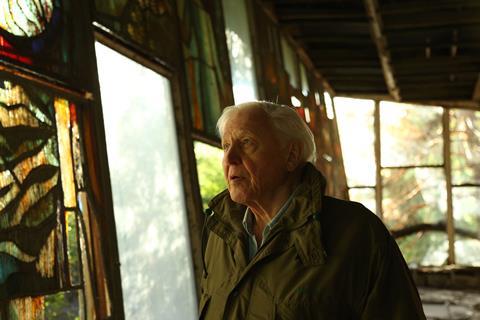Wildscreen panel addresses growing concerns around AI usage in wildlife programming
Wildlife producers have addressed concerns regarding the use of AI in natural history programming with Silverback Films’ Keith Scholey comparing it to a “super tanker coming down the line”.
The use of AI has been a hot topic at this year’s Wildscreen festival, with a session earlier in the week demonstrating the vast capabilities of the technology.

The prospect of bringing a series of taxidermy animals from the natural history museum to life to demonstrate the power of AI led to a lively debate regarding the concerns of how realistic the technology was, and how it may be used in the future.
On a panel yesterday discussing the current state of the industry, Silverback director and co-chief executive Scholey referenced this, saying: “The big challenge for natural history will be what is real and how you put a value on reality.”
He continued: “You could very quickly see cheap AI content just flooding the market, and we have to consider how you persuade the world to pay for the world of reality.”
Walter Kohler, founder and chief executive of Terra Mater Studios agreed, stating that “AI is the biggest problem we have in the room.”
He said: “You are used to seeing an image and believing it is real. This will be a big disturbance to our mind if we’re sitting there asking if it’s real or not.”
He added that he hopes that incoming EU regulations will address some of these concerns and that natural history content should have to state whether or not AI has been used in programme imaging. “This will have a big influence not only on our industry but also on society,” Kohler said.
The panelists also agreed that the current state of flux that TV finds itself in is different to previous cycles.
“The only way to get out of these holes is through hits. If there weren’t warning signs before that things were getting stale then there’s bright red flashing lights now” Scholey told the audience.
“The money supply has grown constantly since I’ve worked in TV until two years ago, this is the first time money supply has really fallen off a cliff and everyone’s been caught in it.”
He added that he fears it will not be 2028/29 that the specialist factual genre will start to pick up again properly.
The panellists did however express optimism for the future, reiterating some of what Jack Bootle said earlier in the week with regards to audience appetite.
Kohler and Scholey were sitting alongside Vanessa Berlowitz, co-founder of Wildstar Film who discussed streamers and noted that “natural history can still reach massive audiences”.
Berlowitz said: “I think natural history fell short of [streamers’] metrics because it is expensive to make and doesn’t always deliver the audience it needs but they have refined their voices and I think that’s helpful. They won’t make as much but they always need to refresh their tile with innovative material.”
Beyond viewing figures, Scholey said that key to natural history programming is its ability to make an impact on conservation. “The real worry for me is for the natural world if we allow natural history programming to slip, it would be a conservation catastrophe” he said.
Silverback is currently producing a film regarding the oceans, which he hopes will have sway at an upcoming UN conference regarding the state of the world’s oceans.
“If we can in any way swing that through a film, I can die happy because that will have a huge impact. We have to ensure that the conservation issue is never lost,” said Scholey.








No comments yet